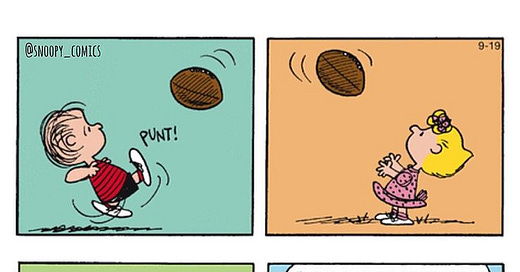Dear Tamar:
I have a large collection of cookbooks, and I always wonder what titles are on experts' shelves. I learn by reading rather than doing, and it sometimes feels like an escape. On the other hand, I don't think this is unusual behaviour. Or, is it? Will you share the names of the books on your bookshelf?
-Curious Carol
Dear Curious Carol,
A few months ago, I read the scientist, Arielle Johnson’s, book, Flavorama. Its pages, chock-full of explanations for culinary and gustatory phenomena, are where I read about retronasal olfaction, which has been flitting around my mind like a butterfly ever since. Retronasal olfaction is smelling through your mouth—as opposed to the usual nose-smelling we’re used to (orthonasal olfaction.) Retronasal smelling happens when aromas of the foods we’re chewing and swallowing rise through our mouths, reaching our noses through the back door, as it were.
This is intriguing enough. But it has been hounding me as a metaphor—an example of the many ways material enters our minds and bodies by unexpected routes. I’ve been considering it in terms of my glacially-slow development as a tennis player; two years in, I’m determined to turn off my analytical thinking, and trust that another intelligence will kick in, while I’m holding a racket. I’ve been considering it abstractly, in terms of “the hard problem of consciousness”—why and where and how consciousness arises. In both cases, an image of roasted mushroom fragrance wafting invisibly upwards while I chew accompanies my contemplations as evidence that the paths by which we perceive aren’t straightforward.
I haven’t forgotten your request. I bring up retronasal olfaction as a metaphor because the books that inspire me carry their information up the back stairs. As a chef in Georgia, I had to write a menu every night, and learned to rely on looking at the photographs in the Zuni Cafe Cookbook. Zuni Cafe is in California, not Georgia. Our produce was different; our clientele was different; I wasn’t nearly technically expert enough to replicate the book’s recipes. But the photographs wove their way into my mind’s creative nerve centers so reliably that after flipping through a few pages, I could set the book aside and make menu changes that excited me.
At various times since leaving professional kitchens, I’ve found Lin Yutang’s The Importance of Living to be my strongest culinary influence. “The song of the bird, the color of the flower, the petals of the orchid, the texture of chicken meat are the things that concern us.” It’s not a cookbook, but a book about the currents that flow through Chinese cultural and philosophical life. And still, it not only drives me to the kitchen but affects deeply what I do when I’m there.
Though I rarely bake, my husband can’t eat wheat, my son has equivocal interest in eating at all, bread books, pizza books, recipe books from bread-centered cuisines take up disproportionate space on my shelves. My Franny’s cookbook (full disclosure: my brother was the head chef of the restaurant) is in-reach and dog-eared, though I haven’t made gluten-full pizza in years. Leah Koenig’s Portico, from which I haven’t cooked, has been picked up and put down a dozen times. Saltie: A Cookbook, from Brooklyn’s erstwhile best sandwich shop, is excessively “used” for a book from which I don’t “make anything.” Sami Tamimi and Tara Wigley’s Falastin, which isn’t that bready but most of whose ingredients I can only find locally for two months of the year, is obviously battered—flipped through and pondered with frequently during the other ten months.
The bread books and the hot-weather cuisine books provide me, through an intellectual breed of retronasal olfaction—AKA backdoor influence—a wellspring of ideas for meals centered on foods other than meat. After looking through any of the books I’ve mentioned above, I’m bubbling over with inspiration for dinners that, if they feature chicken or beef or lamb at all, do it in an accessory way. They affect a shift in my perspective, which, when turned, is free to consider the grains I can cook, and the vegetables I can buy.
Dear cook, the books I find helpful are unlikely to help you. We are different people, with different noses and minds and different paths to reach them. What I can offer is the strategy of letting yours be reached by whatever means they can: whether novels or atlases or histories or book reviews, or recipes for foods you can’t cook or recipes for foods you can. Luckily, you have already claimed the only approach you need to make the literary selections that will inspire you. Your curiosity, Carol, will get you there.






I love this idea of the "backdoor influence" of certain cookbooks. I would say More Than Cake by Natasha Pickowicz and Company by Amy Thielen do this job for me. And...An Everlasting Meal! I haven't read it in years, but still conjure up the feeling of it when I'm in the kitchen sometimes.
Interesting to see: While we're not at Martha Stewart Entertaining levels, used copies of the Franny's cookbook (now out of print, I presume) are going for a pretty penny!